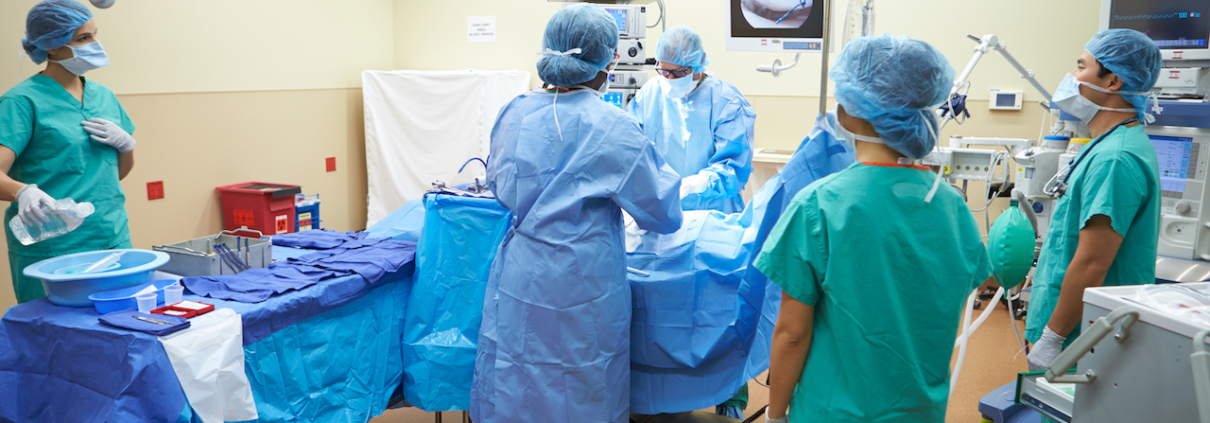Why Is PPE So Important in Healthcare?
Personal protection equipment (PPE) is vital for effective infection prevention and control in healthcare. PPE protects both staff and patients from infection through acting as an effective barrier against common sources of infection such as coughs, sneezes, and bodily fluids.
PPE Protocols
But it’s not just the PPE itself that works to prevent infection. There are also key protocols associated with PPE, all of which are designed to reduce the risks of contamination. These include:
- Storing all PPE in a clean and dry area, close to the point of use.
- Ensuring all PPE is single-use only, unless specified by the manufacturer.
- Putting on and taking off PPE in a specific order, with thorough hand-washing between each step.
- Changing PPE immediately after seeing each patient, and immediately after each task or procedure.
- Correctly disposing of all PPE immediately after use.
An Essential Introduction to PPE in Healthcare
Though certain medical procedures will call for specialist protective equipment, usually when we talk about PPE we’re referring to the following:
- Scrubs
- Gowns and aprons
- Gloves
- Footwear
- Head covers for facial and head hair
- Masks and face shields
There are specific guidelines for what type of PPE to use for each task. And as we mentioned above, there are separate guidelines for storing PPE, disposing of it, and putting it on and taking it off.
You’ll find many guides to PPE and its related protocols on our site:
- When and what type of PPE to use – the latest NHS guidelines.
- Key factors to consider when selecting PPE.
- How to apply and remove PPE in the correct order.
What Is The Most Important PPE?
As different types of PPE are designed for different tasks, then really, no single piece of PPE is more or less important than any other. Some might argue that masks and face shields are the most important, as they can protect you from accidently ingesting bodily fluids during certain procedures, which can be a key source of infection. But if you’re handling caustic chemicals in the lab, a face covering won’t be as immediately useful as a good pair of gloves. So who’s to say which is the most important?
The importance of any given piece of PPE depends entirely on the task at hand. It’s also fair to say that any piece of PPE is only as good as the person using it.
If the equipment doesn’t fit properly, or if the person doesn’t follow the essential infection control protocols, then they might as well not have bothered wearing any PPE in the first place.
How Effective is PPE for Healthcare Workers?
In December 2021, the UK’s National Institute for Health Research released the results of a study into the effectiveness of PPE for healthcare workers.
The study specifically looked at PPE’s effectiveness in reducing the transmission of Covid-19 in health and social care settings. PPE might offer different levels of effectiveness when used to reduce the transmission of other pathogens.
The study accounted for numerous variables, including full-PPE use compared to partial use, the frequency and consistency of PPE use, and the impact of infection control training and education on transmission rates.
You can read the key findings of the study.
How Else Can You Prevent Infection in a Healthcare Setting?
PPE, and the protocols associated with its use, is just one of many standard infection control precautions in a healthcare setting. Other vital precautions include good hand hygiene, respiratory and cough etiquette, patient placement, and the correct management of equipment, linen, and waste.
You can read our complete guide to the standard infection control precautions.
How to Manage Infection Control
We offer many services and solutions that can help you manage infection prevention and control in your healthcare setting.
Our services include:
- Air purification
- Face-fit testing for PPE effectiveness
- Workplace exposure monitoring services
- Washroom hygiene solutions
- Fluid management solutions
- Cleaning equipment, disposal containers, and sanitising chemicals
So if you’d like some guidance on infection control, or a free quote for any of our services, get in touch to talk to an expert today.



